How can Africa cope? Are solutions—or, at least, possibilities—to be found at the local, national or regional level? Listen to Yvonne Aki-Sawyerr, mayor of Sierra Leone’s capital Freetown, and Carole Wainaina, a leader of Africa50.
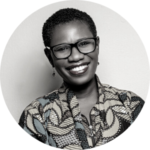 Yvonne Aki-Sawyerr OBE was sworn in May 2018 with a commitment to transform Freetown using an inclusive, data-driven approach to address challenges in the city. The 3-year Transform Freetown plan details 19 concrete targets across 11 sectors and covers issues ranging from tackling environmental degradation to facilitating the creation of jobs in the tourism sector.
Yvonne Aki-Sawyerr OBE was sworn in May 2018 with a commitment to transform Freetown using an inclusive, data-driven approach to address challenges in the city. The 3-year Transform Freetown plan details 19 concrete targets across 11 sectors and covers issues ranging from tackling environmental degradation to facilitating the creation of jobs in the tourism sector.
A finance professional with over 25 years of private sector experience in strategic planning, risk management consulting and project management, Mayor Aki-Sawyerr’s public sector engagement began with her work during the 2014-2015 Ebola epidemic and her subsequent role as Delivery Team Lead for the second phase of a multi-stakeholder programme to drive socio-economic recovery in Sierra Leone post Ebola. Mayor Aki-Sawyerr is a Chartered Accountant and holds an MSc in Politics of the World Economy from the London School of Economics and a BSc Hons in Economics from Fourah Bay College.
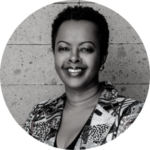 Carole Wainaina is a leader of Africa50, the pan-African infrastructure investment platform capitalized by the African Development Bank, 28 African countries and two African Central Banks based in Casablanca. She is a well-respected senior executive with global experience in the private and public sectors at senior levels, including strategy formulation, leading multi-disciplinary teams, and driving organizational change.
Carole Wainaina is a leader of Africa50, the pan-African infrastructure investment platform capitalized by the African Development Bank, 28 African countries and two African Central Banks based in Casablanca. She is a well-respected senior executive with global experience in the private and public sectors at senior levels, including strategy formulation, leading multi-disciplinary teams, and driving organizational change.
Before joining Africa50, she served as the Assistant Secretary General for Human Resources at the United Nations from 2014-2017, leading transformational initiatives for the Secretary General and member states. Prior to joining the United Nations, Ms. Wainaina held senior positions for more than two decades at multinational corporations in Turkey, the United States, the United Kingdom, the Netherlands, and Kenya. She served for three years on the Executive Committee of Royal Philips in the Netherlands as Executive Vice President and Chief Human Resources Officer. She worked for 13 years at the Coca-Cola Company in senior roles, including Chief of Staff for the Global Chairman & CEO as well as President of the Coca-Cola Africa Foundation. She started her career as a management consultant at PricewaterhouseCoopers.
At least so far, what plagues Africa is less Covid-19, than its consequences: collapsed economies, an industrial world that is closing to Africa, a deceleration (if not reversal) in globalization, a new “Cold War” (this time between China and the West), severe climate change, and the urgent need to grow and develop faster to serve its young, demanding population.
How can Africa cope? Are solutions—or, at least, possibilities—to be found at the local, national or regional level? Where is the needed capital?
Looking for answers, Alan Stoga talks to Yvonne Aki-Sawyerr, mayor of Sierra Leone’s capital Freetown, and Carole Wainaina, a leader of Africa50, a public, pan-African infrastructure bank.
Let us know what YOU think and leave a below.
Listen to the episode here or find us on a podcast platform of your choice, (Itunes, Spotify, Acast, Stitcher, Libsyn, etc).
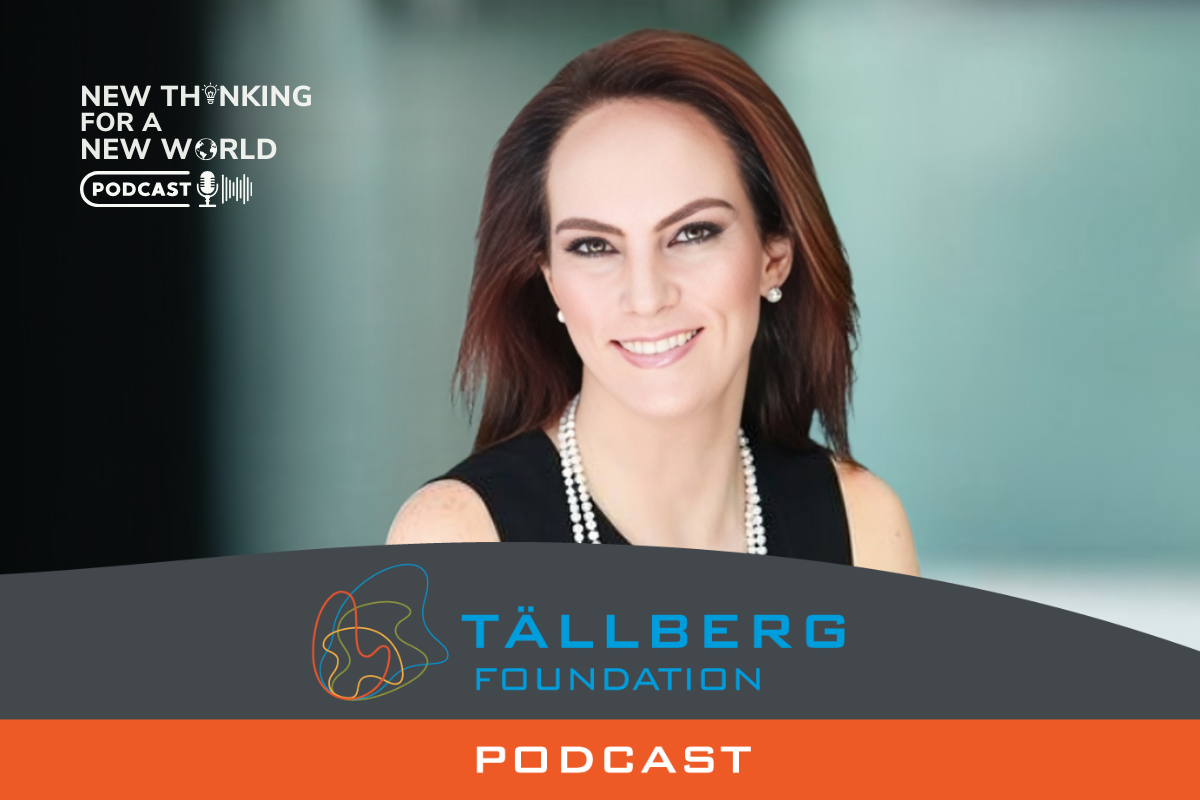
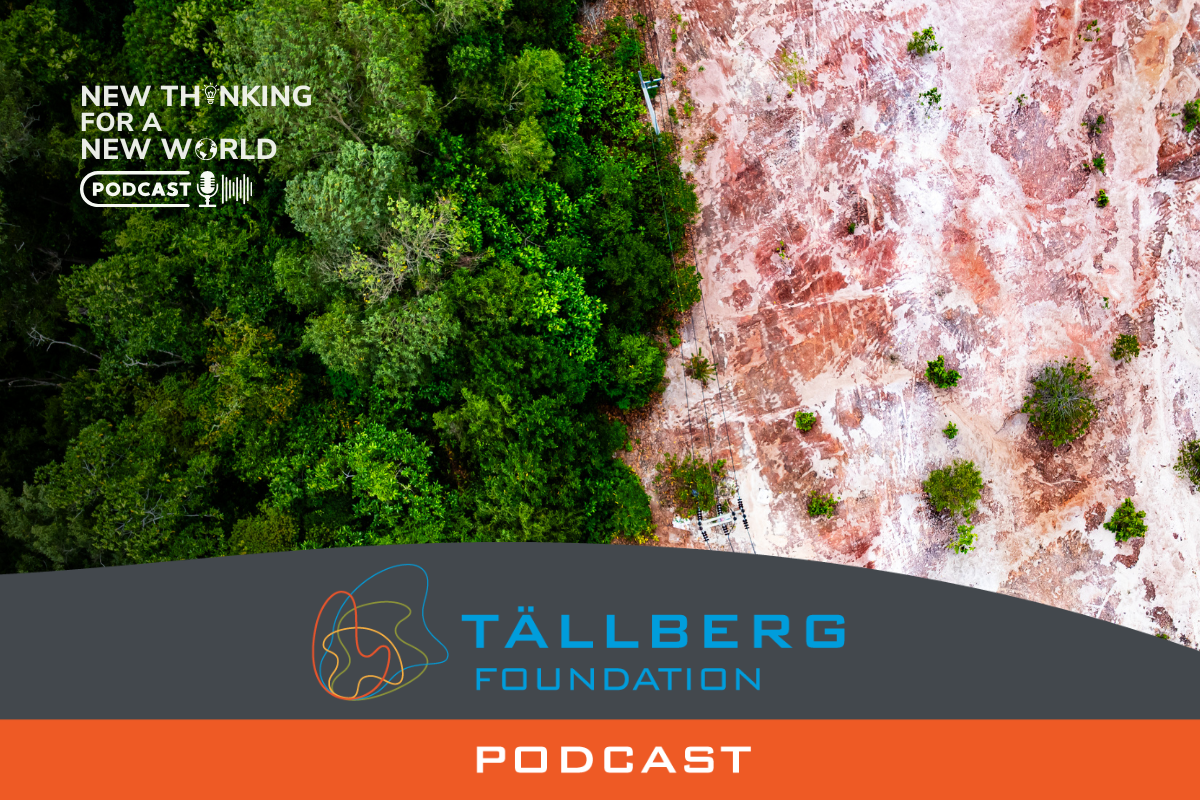
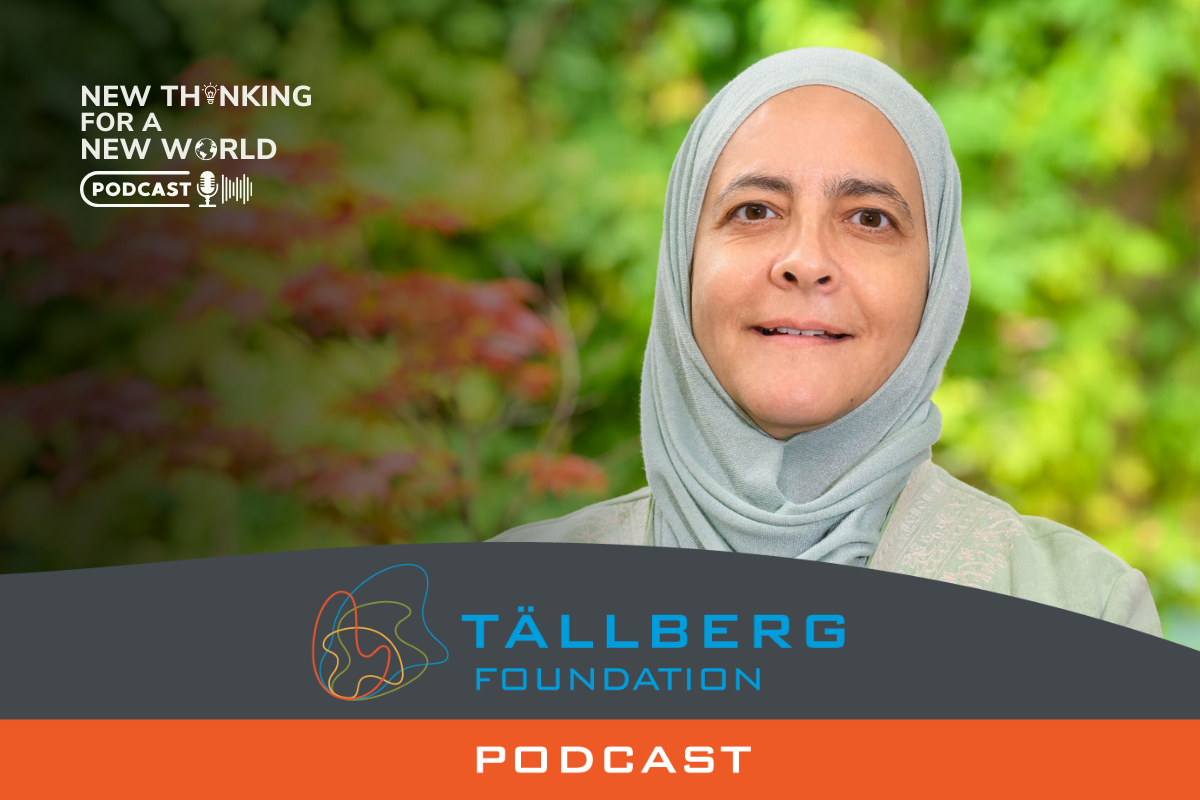
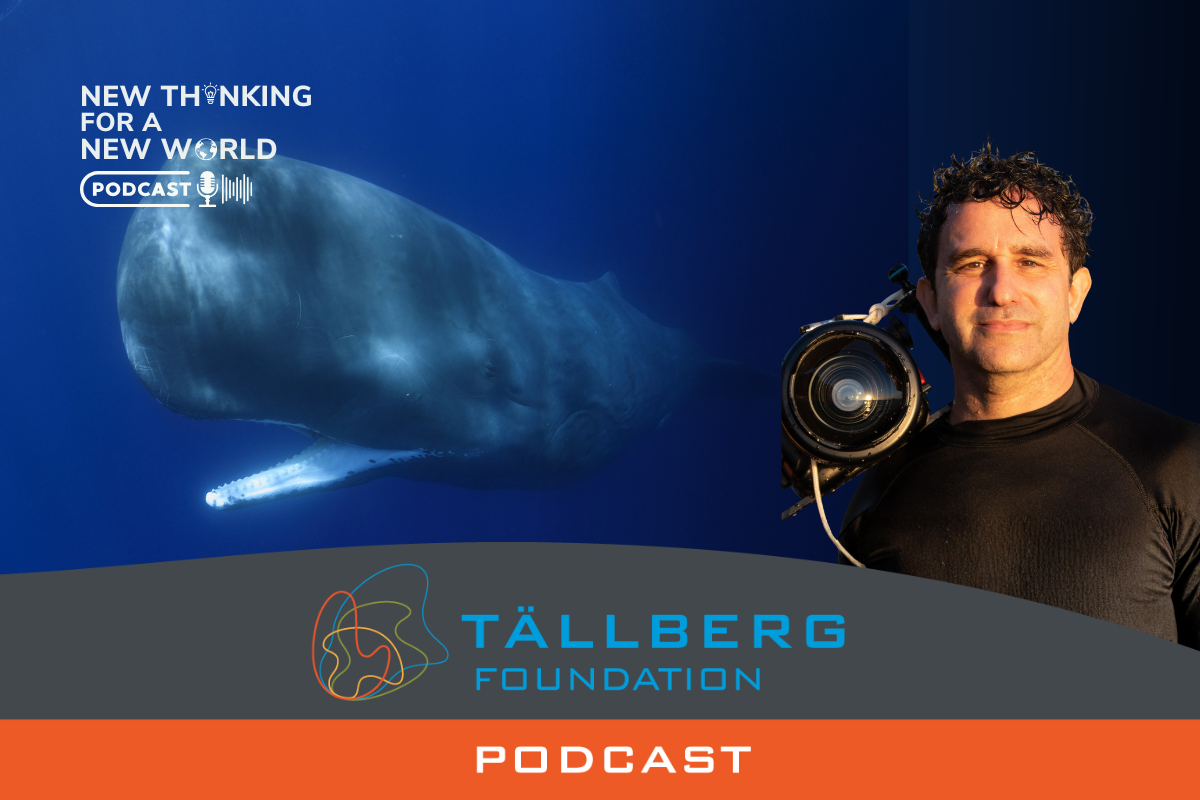
Laws rules, policies may differ, but after Covid, here the fallout, is over shadowing the plague of Mental Health, Homelessness, as well as poverty that exists here, We in Canada, have not received incentives, to support the New Level of Mental Health, Homelessness, or a New existence. Africa 🌍 is different, but we are facing similar issues, especially if you are a minority-owned, or minority period. thank you for the podcasts.
Well done
Africa is high time it begins its factories and industries so it can produce its own
African countries need to be aware of the Covid-19 Crisis.
To get rid of this economic downturn, for countries that are benefiting the economies of African countries.
First, it is setting goals for economic growth for African countries, in line with self-defense and efforts to eradicate Covid-19, on the African continent.
Hard work, especially in the agricultural sector, as at this time, the need for food is very high in this Covid-19 period.
Tällberg Foundation
“New Thinking for a New World”
Theme:
How can Africa cope? Are solutions – or, at least, possibilities – to be found at the local, national or regional level? Where is the needed capital? – Yvonne Aki-Sawyerr – Carole Wainaina,
Hello!
I believe that Africa’s problems are not so simple to compare to those of developed countries; because Africa has suffered for centuries because of negative colonization and, later, because of the bad governance of its dictator and incompetent leaders, that the time has come to concretize, really on the ground, the values democracy, the rule of law, good governance and social justice.
I do not believe that Africa can come out of its underdevelopment on its own, as long as the infernal spiral of dictatorship, grand corruption and incompetence has been erected into a governance system for tens of years…
What Africa needs urgently is not just financial aid to support its development, but real change and real deep and general reforms. But this can only be achieved through close cooperation with developed countries in the West.
What is more important, from my point of view, and which I have already proposed in my book on “the relocation of European companies”, is a whole Marshall Plan for the development of Africa which consists in comprehensive and large-scale cooperation with Western countries.
This global cooperation encompasses, essentially, technical cooperation, the relocation of European companies to Africa, the transfer of technology & know-how, direct investments & project financing, management training and support, technical assistance at all levels.
In this global cooperation, the assistance of Western developed countries to Africa is very essential to help the new African leaders to come out of their lethargy and inertia, and also to break this infernal spiral of “corruption-incompetence-dictatorship”, which characterizes many African leaders and which has paralyzed and plunged all African countries, economically, socially, technologically and financially, into a deadly underdevelopment which has lasted for decades.
This global cooperation will help African countries to emerge from their chronic underdevelopment and, at the same time, engage in deep and large-scale technical cooperation with Western countries to fight against poverty, illegal immigration, unemployment, illegal labor, informal markets, which have ravaged both African and Western countries, and also exterminate social evils and fanaticism of all stripes caused by social marginalization and exclusion.
It is obvious that the African countries and the Arab countries, in particular those which were destroyed in recent years through the scourge of the civil & military wars known as the “Arab Spring”, will allow, in the perspective of this new era of the “New World Order”, to the world economy to recover and restart itself, on a large scale, for the prosperity and happiness of all Humanity.
In addition, it is the duty of Western developed countries to cease all support, complacency and complicity with corrupt, dictator and incompetent leaders of African countries, for stupid personal or government economic & financial interests.
Because, this negative political behavior of certain States and Leaders of the West was the main cause in the continuity of the failing systems in the countries of Africa, and, from there, in the infernal underdevelopment which ravaged all these countries during all this time…
The advent of a “New World Order” should be an opportunity for African countries to renovate themselves, to embark on a democratic process, in the true sense of the word, and to revive their national economies for prosperous human development.
Consequently, the process of relocating European companies to African countries, among other solutions, remains the best way and the shortest way to achieve this global cooperation and this Marshall Plan to save Africa.
This global cooperation policy and this process of relocation of European companies to African countries constitute a better alternative to counteract the divide and the shock between the Western countries of the North and the African countries of the South, which are constantly creating plagues and crises for the two blocs (economic & social crises, illegal immigration, illegal labor, unemployment, fanaticism & religious terrorism, extremism from all sides, etc.).
While hoping to have contributed, through this modest article, to bring more in the treatment of this political problematic of African countries, I would like to suggest my book (on the link below) on “the relocation of European companies to the underdeveloped countries”, which includes within it new ideas and concepts and important proposals.
Abderrahmane AMROU
Link to my book in Amazon website:
https://www.amazon.fr/Deslocalizaci%C3%B3n-espa%C3%B1ola-soluci%C3%B3n-econ%C3%B3mica-salvaci%C3%B3n/dp/2414114347/ref=sr_1_8?dchild=1&qid=1596820213&refinements=p_27%3AAbderrahmane+Amrou&s=books&sr=1-8
Tällberg Foundation
“New Thinking for a New World”
(Inglish Version)
(Part 2)
Theme:
How can Africa cope? Are solutions – or, at least, possibilities – to be found at the local, national or regional level? Where is the needed capital? – Yvonne Aki-Sawyerr – Carole Wainaina,
Alan Stoga Tue, Aug 11, 4:02 PM (3 days ago)
“Not only has the pandemic crippled the economy, it has really put a spotlight on our vulnerability” Yvonne Aki-Sawyerr
Hello !
After reading the articles of our two African friends, in this case Ms. Yvonne Aki-Sawyerr, Mayor of the capital of Sierra Leone, Freetown; and Ms. Carole Wainaina, leader of Africa50, the pan-African infrastructure investment platform capitalized by the African Development Bank, which I received from our sympathetic Friend Alan Stoga, President of the Tällberg Foundation; I want to add a comment to my previous article, because I was a little surprised by the bitter reality of the situation in some African countries.
To begin with, I want to take the example of Sierra Leone, which I was very surprised by the density of the population of its capital Freetown. Thus with 8,450 inhabitants per km2, in a country which has an average density, on a national scale, of 92 inhabitants / km2, this is human blindness, since this Country could have created other new cities to relieve the Capital a little…
So, it is a matter of good governance and not of geographic & natural potentialities. Because, a country like Sierra Leone is very rich in terms of geography, climate and natural resources. What is very astonishing and worrying to note that the population cannot even have normal water to wash their hands…
Compared to Sierra Leone, Israel has a geographic area three times smaller and a national density per km2 of the highest in the world, for a population of almost double; but Israel has a GDP of over 370 billion dollars (2018 estimate); while Sierra Leone had barely reached four billion dollars in 2018.
This further confirms that it is a matter of good Governance and good predictions in the design of global strategies and multi-year national development plans.
Therefore, as Ms. Carole Wainaina said, Africa urgently needs big investments. But how will this be possible in the current situation and that of the post-Covid-19?
“”Without capital, nothing will move.” said Wainaina.”
It is true, but the funds will not going to into Africa with a simple appeal for financial aid and bank credits, especially when the Western countries are in a very critical financial & economic situation, because of the Covid-19 pandemic; And that they have already had experiences with African countries and know that, in the situation in which Africa finds itself now, financial capital is not sufficient to guarantee the success of sustainable development in these African countries.
Thus, the intelligent and courageous question that young African Leaders and executives must ask themselves is:
Why is it normal when millions of Africans are pouring into Western countries, through immigration and even illegal immigration; So when it comes to Western aid workers, who come to bring added value to the national development of African countries, all the alarm bells are suddenly sounded?
I believe that young African leaders must break free from the colonized complex and accept openness for a great comprehensive cooperation with Western countries, if they want their countries to emerge from chronic underdevelopment.
For example, why not organize a pan-African cooperation lottery, like the Western countries, to recruit Western executives and specialists in all sectors and branches (economy, institutions, administrations, companies, specialized organizations, etc.) who have a leadership deficit or a performance failure?
Thus, depending on the needs in terms of management and specialists in all sectors and branches, quotas will be granted to European countries (Western countries in general), to send their executives and specialists, who are in the process of unemployment because of the economic crisis and the closure of their businesses, in order to bring more to African countries, in terms of know-how, technology transfer, management training, change of negative behavior and mentalities, and contribute to the national development of these countries.
It must be realized that positive global cooperation is much more beneficial and productive for African countries than a colonialist system, under cover, established by rogue and dictatorial leaders.
Therefore, African countries need to adopt global strategies concerted at the level of companies, local Governments and independent States, to implement a comprehensive plan for the economic & social development of Africa, which must be endorsed during a “Pan-African Congress for the Development of Africa” which will house Western aid workers and African executives and leaders.
This congress will allow African (sub-Saharan) countries to break the isolation and unite to implement a comprehensive strategy and an emergency development plan for Africa with the global cooperation of Western countries. This can promote the inflow of large foreign investments in Africa, especially through the process of business relocation.
It is true that African countries have strong youth, cheap labor and invaluable natural resources; but without the contribution of technology, know-how and technical cooperation from Western countries they can do nothing.
In conclusion, African countries must anticipate and take preventive measures and initiatives to open up to a great global cooperation with Western countries, if they do not want to be caught off guard by this Covid-19 pandemic, if ever the effective vaccine is slow to emerge and this pandemic continues and spreads across the African continent.
In this vein, there are several forms and formulas of cooperation with Western countries, which can allow African countries to preserve their independence and, at the same time, to open up to global cooperation which can guarantee their sustainable development for economic growth and social prosperity which all African peoples need.
To finish, I would like to suggest to our African friends to read my two books entitled “The State System” and “Relocation of European companies to developing countries”; where important concepts, ideas and proposals have been developed to help resolve the multifaceted crises that have crippled African and Western countries.
In this regard, the concept of “interdependence between States and Governments”, which I have proposed for more than ten years, is a very effective political instrument which can be made available to fragile and powerless countries (on the economic, financial, social, technological, political and institutional terms), in the event of major crises or large-scale natural & human disasters …
Abderrahmane AMROU
Below is the link to my books on the Amazon website:
https://www.amazon.fr/Livres-Abderrahmane-Amrou/s?rh=n%3A301061%2Cp_27%3AAbderrahmane+Amrou